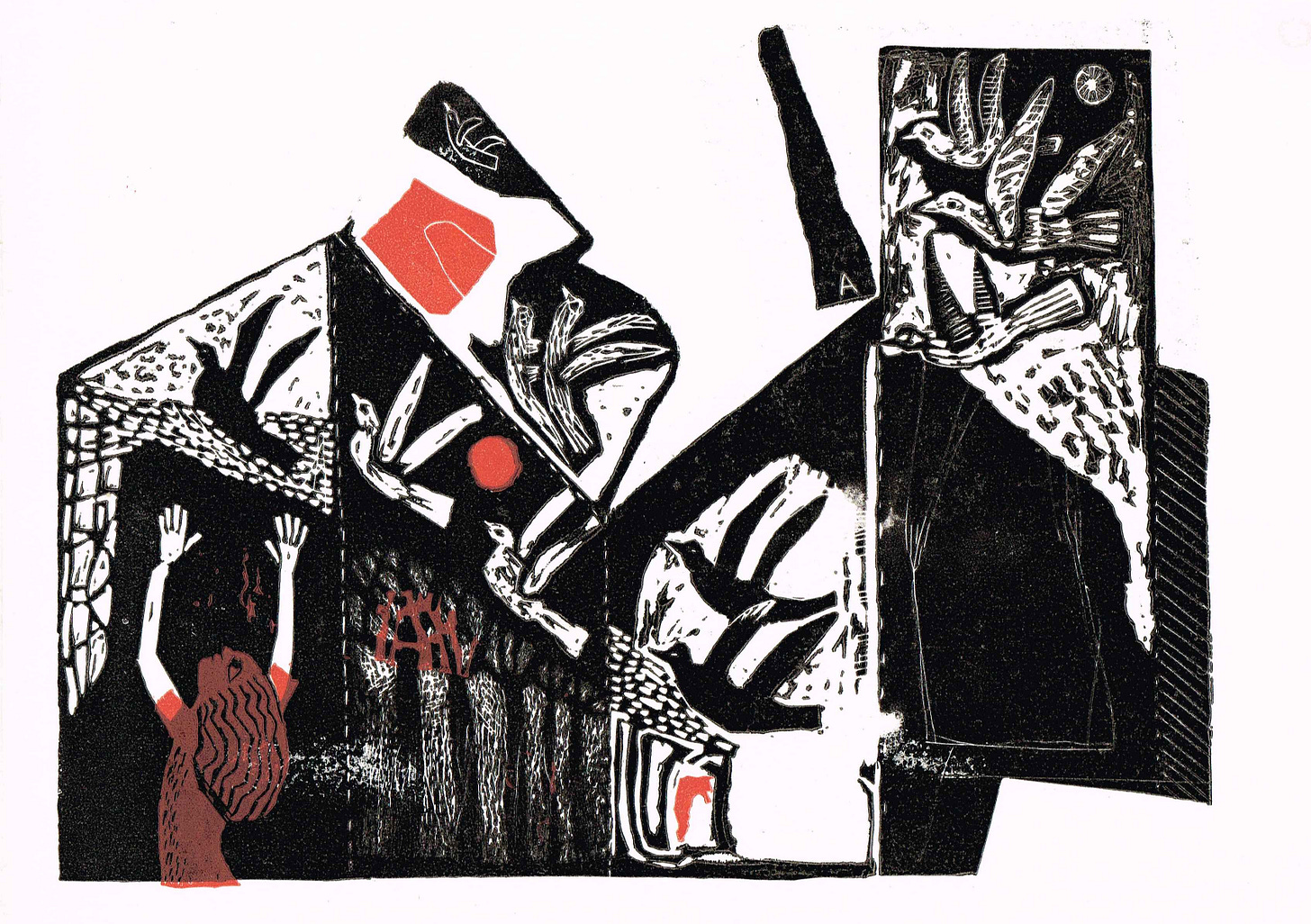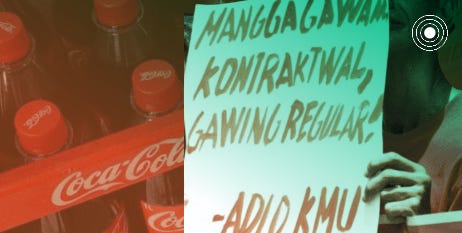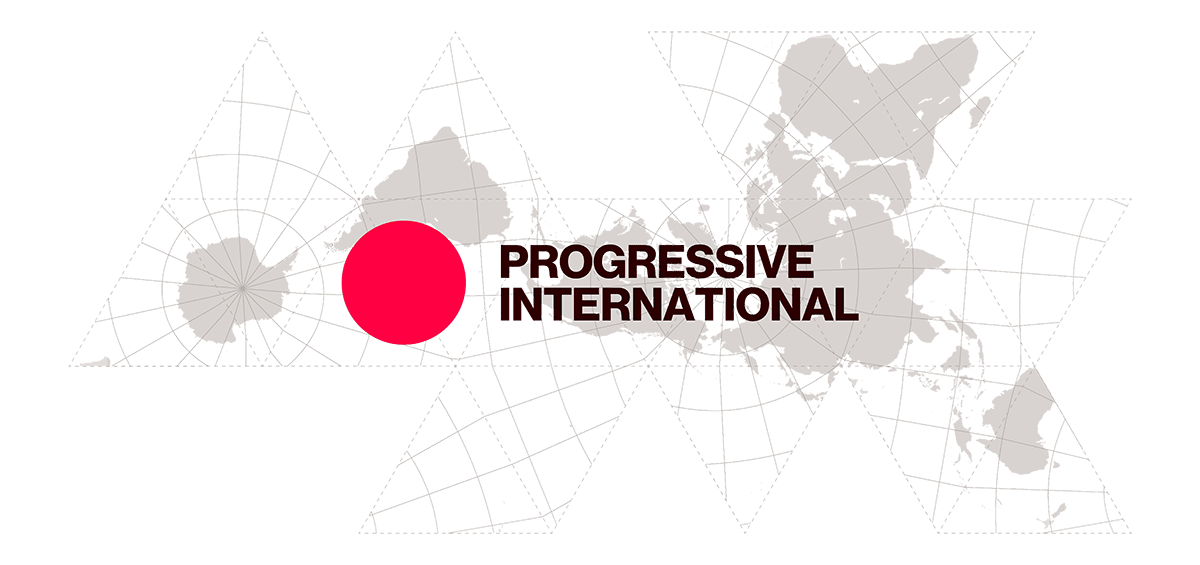Art of the Week: Gladys Afamado, Artificio de pájaros, 1988
In a time of rolling news horrors, moments of hope shine brightly. Uruguay’s recent presidential election is one such moment. On November 24, 2024, Yamandú Orsi, leader of the progressive Broad Front coalition, secured the presidency in a historic runoff, winning 50% of the vote. His victory over Álvaro Delgado of the National Party, who secured 46%, marks not just a political shift, but a reimagining of Uruguay’s future. The Progressive International Observatory was on the ground to witness both rounds of the election.
As a member of the Popular Participation Movement (MPP) within the Broad Front, Orsi is seen as heir to the political tendency led by popular Uruguayan president José ‘Pepe’ Mujica. Orsi’s campaign, built on a platform of inclusivity and progress, resonated deeply with a population grappling with economic inequality, rising crime, and the urgent need for environmental action. The former intendant of the Canelones department, will be the first president from the Frente Amplio to hail from Uruguay’s interior. Orsi’s ties to rural communities beyond the Broad Front’s urban bases are complemented by the vice president-elect, Carolina Cosse, the former mayor of the capital, Montevideo.
On March 1, 2025, Orsi will assume office, bringing with him a bold vision for a more just and equitable Uruguay. A delegation from the Progressive International will be in Montevideo to witness the inauguration.
This victory marks the return of the Broad Front to power after five years of centre-right governance under President Luis Lacalle Pou. It is a reminder that progressive politics, when rooted in the needs and aspirations of the people, can triumph even in challenging times.
With child poverty rates hovering around 25%, Orsi has made addressing inequality a cornerstone of his presidency. His plans include increasing social spending, creating jobs for young people, and expanding educational scholarships to lift vulnerable populations out of poverty. Orsi has signalled his intent to reform Uruguay’s social security system, including the possibility of lowering the retirement age. He also supports reducing the standard workweek to 40 hours, a key trade union demand.
Environmental sustainability is a key priority for Orsi. Uruguay is already a leader in renewable energy with more than 98% of its electrical grid powered by renewable energy. Orsi has expressed interest in expanding investments in green technologies, and exploring international collaborations to develop green hydrogen production facilities. His foreign policy will focus on strengthening regional cooperation within frameworks like Mercosur, while expressing caution towards free trade agreements.
The Progressive International stands with the people of Uruguay as they chart this transformative new course.
In solidarity,
The Progressive International Secretariat
Contribute to the PI
Our weekly Briefing is sent to over 80,000 readers in five languages, sharing stories and critical updates from the frontlines of the global struggle. To do this, we count on supporters like you.
Support comes in many forms, including sharing content and making recurring donations. We greatly appreciate all forms of support in making solidarity more than a slogan.
Latest from the Wire
Coca-Cola’s Cebu plant to retrench over 200 workers
In the Philippines, Coca-Cola’s Cebu plant laid off over 200 contractual workers.
‘Handcuffed, Legs Chained, 40-Hour Long Ordeal’: Indians Deported on US Military Plane
Over 100 Indians, including women, were deported from the U.S. in handcuffs and chains aboard a military aircraft.
Latest from The Internationalist
Next week on The Internationalist: Amanda Ricketts & Claire Herbert Tenancy and housing crisis in Philadelphia:
"Despite being a significant source of affordable housing in Philadelphia, residents and activists have accused the organization of accelerating gentrification through the sale of scattered sites of housing and land, contributing to the harmful displacement of communities of colour."
Latest from the Movement
The US attacks Cuba’s health solidarity
The United States has expanded a visa restriction policy to target Cuban healthcare workers overseas. Cuba is known around the world for its solidarity health brigades, aiding countries in need, including during the Covid-19 pandemic and the West African Ebola outbreak. Over the length of its history, Cuba has dispatched over 600,000 medical professionals to more than 160 countries, providing critical aid to peoples ravaged by imperialism.
"Suspension of visas associated with Cuba's international medical cooperation agreements represents the seventh measure of unjustified aggression against our population in a month," said Bruno Rodriguez, Cuba’s foreign minister.
The decision to restrict visas for those involved with Cuban medical missions is the latest significant escalation in US policy toward Cuba since Trump took office on 20 January.
Learn more about Cuba’s health system in this explainer video.
49 years of the Sahrawi Arab Democratic Republic
This week the Sahrawi people marked the 49th anniversary of the Sahrawi Arab Democratic Republic, proclaimed on February 27, 1976. Celebrations in Smara camp brought together citizens, officials, and global solidarity delegates, highlighting their pursuit of freedom and independence.
Much of Western Sahara remains occupied by Morocco, with support from the US and EU.
Please pressure our country, Mr Trump
The Solidarity Movement — a white, Afrikaner organisation — has submitted a 5-page memo in support of the Trump Administration’s attacks on South Africa, which urged Washington to “sustain” present "pressure" on South Africa.
In its briefing, The Solidarity Movement declares that it is “deeply grateful to President Trump” and expresses its support for Trump’s hostility to South Africa’s legislative attempts to achieve racial redress and its criticism of Israel. The briefing also asks Washington to "strengthen" the capacity of "the private sectors that are standing for a free market and an investor-friendly economy.”
The news comes as the Trump Administration has withdrawn funding for dozens of critical HIV organisations across South Africa, as part of Washington’s sustained retaliation against the nation for daring to pursue land reform and solidarity with the Palestinian people.
The long war on Cuba
This week the Progressive International co-organised with the Columbia Center on Sustainable Investment (CCSI) a virtual conference to explore the multifaceted issue of sanctions against Cuba, bringing together experts and stakeholders to discuss the sanctions’ impact, legality, and potential for change. You can watch the event here.
Support for The Hague Group in unlikely corridors
This week PI Co-General Coordinator and acting Chair of The Hague Group, Varsha Gandikota-Nellutla and advisor to the Group, former Ecuadorean foreign minister Guillaume Long briefed Members of the UK Parliament in Westminster on the Group's nations uniting to defend international law for Palestine. MPs present pledged to support the Group’s efforts and work to help its work.
Also this week, in testimony to the United Nations Security Council, former Israeli peace negotiator Daniel Levy highlights the "spirit of Bandung" captured in the formation of The Hague Group for Palestine and urged all other law abiding states to join the Group.
Meet the Reactionary International
From Brasília to Budapest, a global network of far-right forces has grown to include parties and politicians, judges and journalists, foundations and financiers, academics and oligarchs.
This is the Reactionary International — far more powerful, and far more insidious, than figureheads like Donald Trump and Javier Milei could ever be on their own.
But how does the Reactionary International actually work? And why has it been so successful in advancing the agenda of the far right across the world?
Watch investigative journalist Matt Kennard explain in the latest episode of The International, the world-spanning video series brought to you by Jacobin and the Progressive International.
Seized, settled and let: AirBnB and Booking.com in the West Bank
The Guardian finds 760 rooms being advertised in hotels, apartments and other holiday rents in illegal Israeli settlements in the West Bank on Booking.com and Airbnb. In a landmark advisory opinion in July 2024 the UN’s International Court of Justice ordered Israel to end its occupation of Palestinian territories, saying that its presence there violated international law. It also advised member states not to recognise the occupation as legal, or to render aid or assistance in maintaining the situation.
The Progressive International’s Watermelon Index is supporting groups, including Youth Front for Palestine, that are organising with workers in Booking.com to demand it drops its roughly 70 listings in the Occupied Palestinian territories. You can find out more about the campaign against Booking.com’s complicity here and please get in touch with us if you would like to submit information about a complicit company, tell us about a worker-led campaign, or get in touch about setting one up in your company.
Art of the Week
Artificio de pájaros, 1988 is a linocut by Gladys Afamado (24 May 1925 – 29 December 2024) a celebrated Uruguayan artist known for her poetry and contributions to the Montevideo Engraving Club. Her contributions to the club included the 1966 artwork Campaña de solidaridad con los presos políticos en Portugal.
In context of a deep economic and social crisis, worsened throughout the National Party’s leadership from 1958 and spurred by the Cuban revolution of 1959, the club made works that denounced repressive security measures, the Vietnam War, and the murder of students by police, which resonated with movements globally. Inspired by post-war movements in Europe, the club was supported through a model where paying members received a monthly print. The membership grew from 100 in 1953 to 1,400 by 1964.







